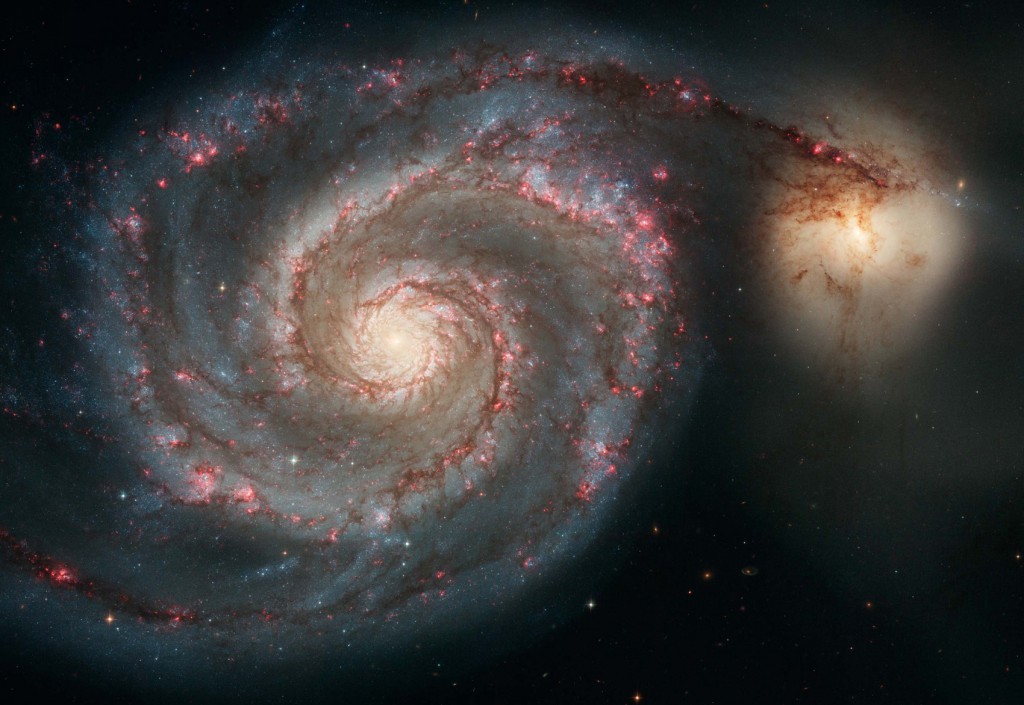
By Peter Finney
American Jesuit Father Robert Spitzer – a philosopher, accountant, former university president and leadership consultant – always has had a fascination with the intersection of faith and reason.
He’s smart enough to have debated physicist Stephen Hawking, an avowed atheist, on national television over the scientific underpinnings of the beginning of the universe and the theological arguments for the existence of God.
In a recent address in New Orleans, Fr Spitzer said the exciting news for the new evangelisation being called for by Pope Benedict XVI is the recent discoveries in “space-time geometry”, prompting eminent physicists to assert the cosmos had to have a beginning and thus had to have a creator.
On the occasion of Hawking’s 70th birthday in January, physicist Alexander Vilenkin, director of the Institute of Cosmology at Tufts University, read a paper asserting just that. Science journalist Lisa Grossman, writing in New Scientist, pithily described Vilenkin’s presentation as “the worst birthday present ever”.
If the rate of expansion of the universe is greater than zero – something virtually all physicists agree on – “at the end of the day we will reach an absolute beginning point prior to which the universe and multiverse (a combination of universes) were nothing”, said Fr Spitzer, founder and president of the Spitzer Centre for Ethical Leadership in Michigan.
“Physical reality itself was nothing, and the one thing we know about nothing is that it’s nothing,” he said, eliciting laughter from his audience at the annual dinner of the Catholic Foundation of the Archdiocese of New Orleans on November 8.
“The second thing we know about nothing is that nothing can only do nothing, and if the only thing nothing can do is nothing, then the whole of physical reality, configured as universe or multiverse, was nothing.
“It could never have moved itself to something by itself, because the only thing that it could do when it was nothing is nothing.”
The scientific evidence points only toward a created universe, he said.
“There is something else, and that something else has to transcend the universe and be powerful enough to literally create it,” he continued.
“And then, as you begin to investigate the cosmological constants, the initial conditions of the universe and multiverse, and when you look at the fine-tuning paradoxes that virtually every physicist, including Stephen Hawking, has admitted, then that creator is not just transcendent and powerful but really, really smart.”
Why this is important, Fr Spitzer said, is that it gives Catholics another reason to evangelise a culture that is mired in materialism and “its loss of the sense of eternal dignity”.
Fr Spitzer said when he teaches college students, someone usually poses the question about the existence of God and whether we really know “that Jesus walked and talked upon this earth”.
“And then the rest of the classroom goes, ‘Yeah, do we really know?’” said Fr Spitzer, who retired in 2009 as president of Gonzaga University in Spokane, Washington.
“The answer is, ‘Yes, I think we do know,’” he said.
“What’s my point? This contemporary approach is given to us almost as a gift from God.
“Alexander Vilenkin says in the final part of his essay that a good argument will convince a reasonable man and that a proof will convince even an unreasonable one.
“Well, now that the proof is in place, cosmologists cannot even hide behind the possibility of a past eternal universe.
“They must confront the reality.”
All this allows us to answer “our kids’ questions” about the evidence for God.
Fr Spitzer said even recent studies about near-death experiences point to God.
Dr Eben Alexander, a Harvard-trained neurosurgeon, wrote about his experiences after being in a coma for seven days with his cortex completely shut down.
“He was clinically dead and he was monitored the whole time and he actually had these experiences,” Fr Spitzer said.
“He could show definitively there was no physical activity that produced it. There are really good studies taking place in multiple hospitals that give evidence that human beings survive bodily death, that we have a soul that literally leaves the body.”
This is riveting evidence that God exists and is moving in the world, and Fr Spitzer said, “it’s a chance for re-evangelisation”.
“But then it comes right back to the resurrection of Jesus Christ, the resurrection into glory, into unconditional love,” he said.
“We do have to make it contemporary. But as we point and point again, our eternal destiny becomes clearer and clearer even in the midst of the darkness of secularism. It falls upon us, as Church, to move once again to begin the process of re-evangelisation, of healing the culture and of reminding everyone that they are transcendent. You are not simply molecules and atoms.”
Fr Spitzer, who also is founder and chairman of the Magis Centre of Reason and Faith in Irvine, California, said the early Church transformed the Roman Empire by preaching the Resurrection, the intrinsic and eternal dignity of every human being, love as the greatest commandment and the redemptive view of suffering.
“We are grounded in Jesus Christ, and the Holy Spirit is with us,” Fr Spitzer said. “Human beings are transcendent and destined for eternal destiny and dignity. We must evangelise it.” – CNS